
Bob Goldberg created and currently runs a novel Teaching Program which is funded by the National Science Foundation (NSF) Plant Genome Program and supported by the UCLA College of Letters and Sciences. This program targets non-science majors at all levels and entering life science students, primarily those with no laboratory research experience. Professor Goldberg's objective is to teach undergraduates about "the excitement of discovery", how orignial science is carried out, how advances in DNA and genes are transforming their lives, and how to teach science. Professor Goldberg also uses cutting edge teaching technology, including a state-of-the-art classroom and videoconferencing software for long distance learning, and UCLA BruinCast for webcasting in order to create one large "global classroom".
The teaching program consists of:(1) a lecture course, HC70A: Genetic Engineering in Medicine, Agriculture, and Law, which provides students with a foundation in molecular biology, and focuses on the ethical, legal, and social implications of emerging genomic technologies. HC70A is currently being taught simultaneously at UCLA, UC Davis, and Tuskegee University through an interactive, long-distance learning program that uses videoconferencing technology. In the past, this class was taught to students at both UCLA and Kyoto University in Japan; (2) a lab course, HC70AL: Gene Discovery Laboratory, which provides an original research experience for students who have completed HC70A, and uses functional genomics to address the question of what genes are required to make a seed? HC70AL is novel in that it provides non-science undergraduates an opportunity to learn first-hand how science is carried out and what scientists really do; (3) a tutorial, HC199: Teaching Students How to Teach, gives undergraduates the opportunity to learn how to teach. Students who have completed both courses can return and work as Teaching Fellows and Peer Research Mentors, providing a real-life classroom experience in teaching, mentoring, and educating their own students.
COURSES DESIGNED FOR BOB GOLDBERG'S TEACHING PROGRAM
This course provides non-science majors and entering life science students with a foundation in molecular biology and genetics as it applies to genetic engineering, and addresses the social, legal, and ethical issues that arise from emerging new genetic technologies. This class is highly interactive, team-oriented, problem-based, and teaches students how to think critically about experimental science and the societal issues raised by advances in genetic engineering, genomics, and human reproduction. 719 undergraduates have taken this course in the 18 years that it has been taught.
Undergraduates who have taken HC70A carry out an original, hands-on research project using state-of-the-art genomics technologies. Non-science students from majors as diverse as economics, communications, and classics team up with beginning life science students in an intense ten-week effort to identify genes that control seed development. Students use Arabidopsis as a model organism and identify knock-out mutations in genes known to be expressed during seed development. The Gene Discovery Laboratory teaches students who have never worked in a laboratory how to carry out an original research project and analyze data critically. At the end of the quarter, each student presents their results at an all-class symposium and is presented with a lab coat embroidered with their name. During the past eighteen years, 73 students have participated in the Gene Discovery Lab, and knock-outs in 103 Arabidopsis genes have been identified and studied.
Genetic engineering is one of most revolutionary technologies in history of science, and allowed genes to be isolated from living cells and studied for first time. The invention of genetic engineering in 1970s had profound impact on our understanding of basic cellular processes, and gave birth to multi-billion dollar biotechnology industry that created drugs to treat human disease, higher-yielding crops able to grow with fewer chemical inputs, genetic testing services to understand ancestry and genetic makeup, and many other applications of benefit to society. This course focuses on the science of genetic engineering from its origins to present. Students primarily read and analyze research papers that have propelled major breakthroughs in medicine, agriculture, and law using genetic engineering technology.
This informal course on the art of teaching is taken by undergraduates who serve as Teaching Fellows and Peer Laboratory Mentors in HC70A and HC70AL. Students learn how to develop a teaching "game plan," dissect and teach scientific papers, speak in front of a class, use the Socratic method as an interactive teaching tool, and gain the confidence and poise needed to teach their peers. Peer Laboratory Mentors also learn how to organize a teaching laboratory, demonstrate and teach genomics and bioinformatics procedures, and how to lead teams carrying out original research projects using functional genomics. In the past eighteen years, 35 non-science and science undergraduates have participated as Teaching Fellows and Peer Laboratory Mentors.
HC70AL students participate in this seminar and use case studies to discuss research ethics and social implications of genetic engineering research.
LONG DISTANCE LEARNING
In 2009, Bob Goldberg extended his Teaching Program across California to UC Davis, and in 2011 to Tuskegee University in Alabama, where through remote teaching, he lectures to students both in the classroom at UCLA and on a screen at UC Davis and Tuskegee University. The HC70A lectures and discussions are carried out in real time using videoconferencing software and a state-of-the art classroom that allows simultaneous video and audio interactions between Professor Goldberg and his students. UCLA, UC Davis, and Tuskegee University students interact with each other and participate in joint discussions and all-class projects. During the quarter, UC Davis and Tuskegee University students have the opportunity to visit UCLA, visiting the lab and interacting with Bob Goldberg and the rest of the class in person.
Bob Goldberg's NSF program was taught simultaneously to students at both UCLA and Kyoto University in Japan as part of a unique Trans-Pacific International Long-Distance Educational Program (TIDE) in 2004. This novel way of teaching gave Professor Goldberg the opportunity to allow his students, from both sides of the Pacific, to merge their different cultures and universities into one large international classroom. In addition, students from each university got the opportunity to "switch sides" for a week during the quarter - UCLA students went to Kyoto and participated from Japan while Kyoto University students visited UCLA and participated "live," providing for a novel cultural and educational experience.
The HC70AL Gene Discovery Lab is also part of Bob Goldberg's NSF-sponsored long-distance learning program. Kyoto University students who had completed HC70A visited UCLA for a quarter and teamed up with UCLA students in the laboratory using functional genomics to uncover genes required to make a seed. Approximately 75 UCLA and Kyoto University students participated in the HC70A long-distance learning program, and 16 UCLA and Kyoto University students teamed-up in the HC70AL Gene Discovery Laboratory. This unique NSF-sponsored program demonstrates the power of high-tech long-distance learning and the impact of teaching an integrated course in different locations to students, including those with different cultures and languages.
TEACHING ASSESSMENT
Bob Goldberg's NSF Program has been assessed in several ways. First, students evaluate HC70A and HC70AL at the end of each quarter as part of the UCLA course evaluation system. Second, a survey is conducted in HC70A on the first and last days of the quarter in order to compare student attitudes regarding a range of genetic engineering issues. Third, students who have taken both HC70A and HC70AL are given a questionnaire that addresses the impact these classes have had on their academic career, their understanding of how science is carried out, and their view of the excitement of discovery. Fourth, each HC70AL student is given an exit interview to discuss the strengths and weaknesses of the lecture and laboratory components of Bob Goldberg's NSF Program and how to improve the program. Finally, Bob Goldberg interviews the undergraduate teaching fellows and peer laboratory mentors to assess the impact that teaching HC70A and/or HC70AL has had on their future career goals and objectives.
Sample assessment Results
Student evaluations have been consistently excellent every year the HC70A course has been taught.
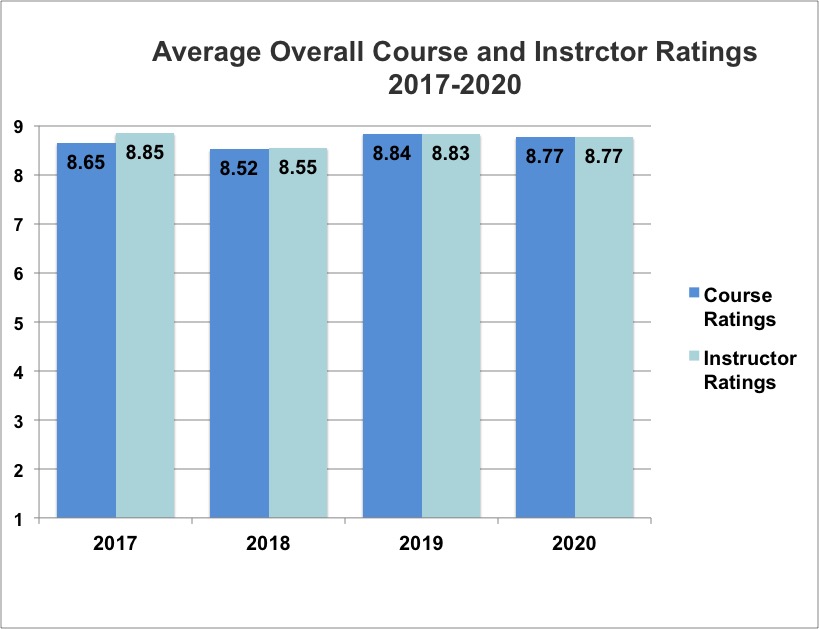
The impact that both HC70A and HC70AL has had on students that participated in the Gene Discovery Laboratory can be evaluated by reading the questionnaire filled out by past HC70AL students.
In 2009, the UCLA center for Educational Assessment evaluated students' perspectives on their experiences in HC70A and 70AL, assessing the impact of these courses on student learning outcomes, and quantifying the effect of the experience on former students who became undergraduate Teaching Fellows and Peer Research Mentors in HC70A and HC70AL.
Sit in on Bob Goldberg's Classes
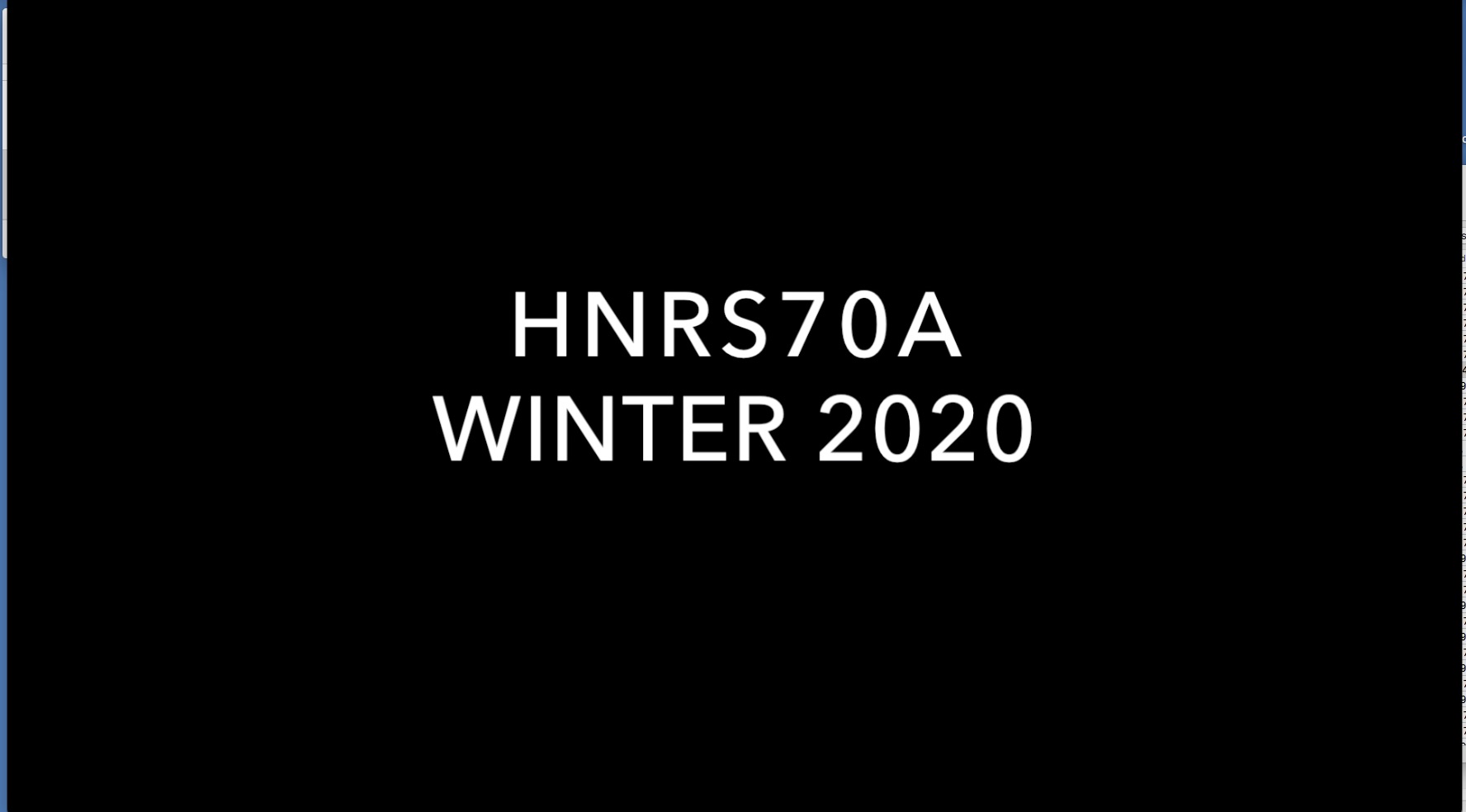
HC70A 2020
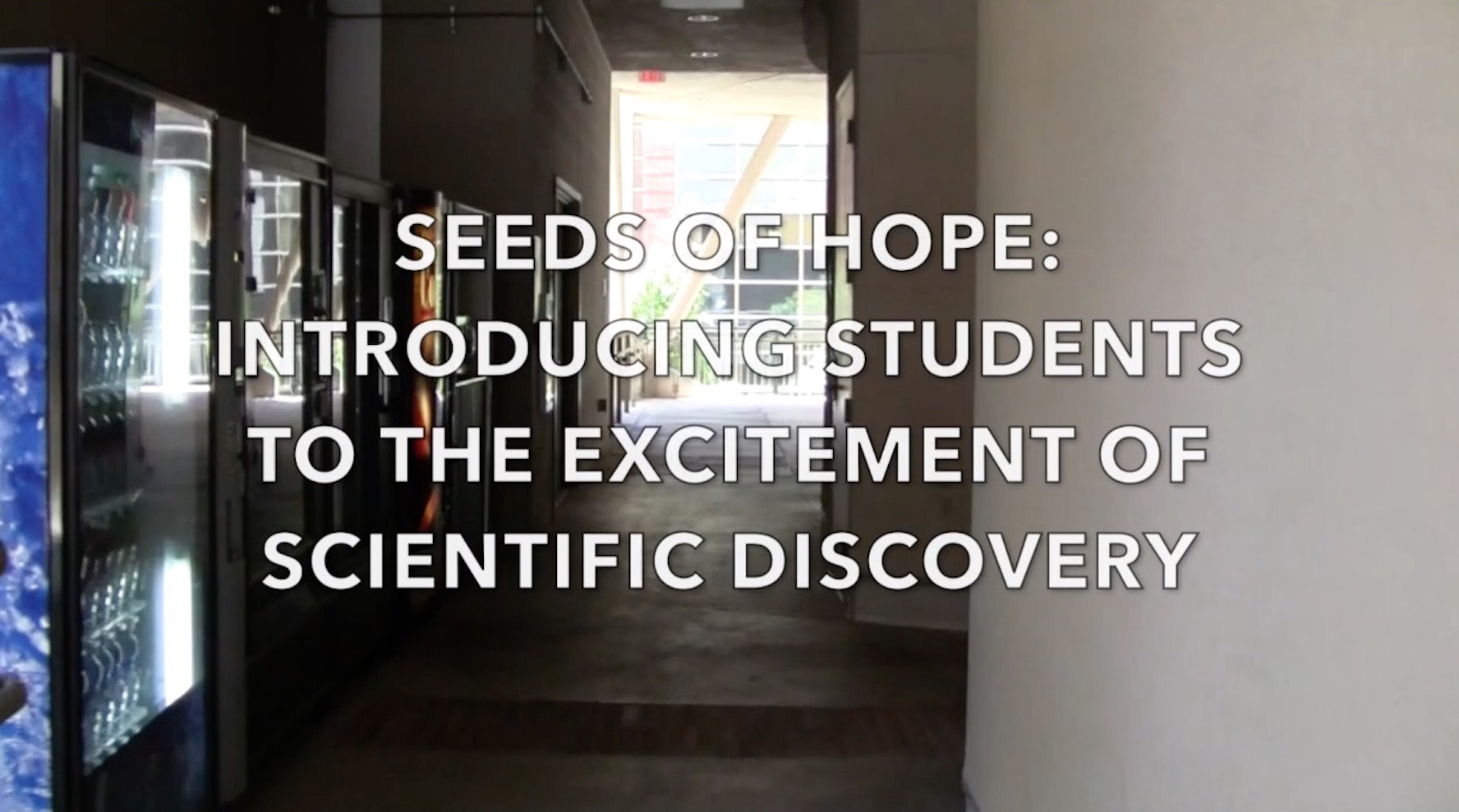
HC70A and HC70AL
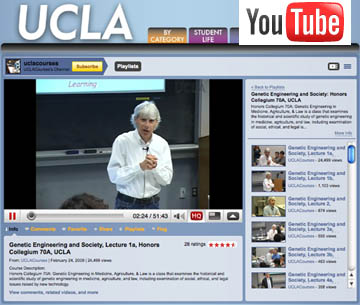
Watch Lectures on YouTube
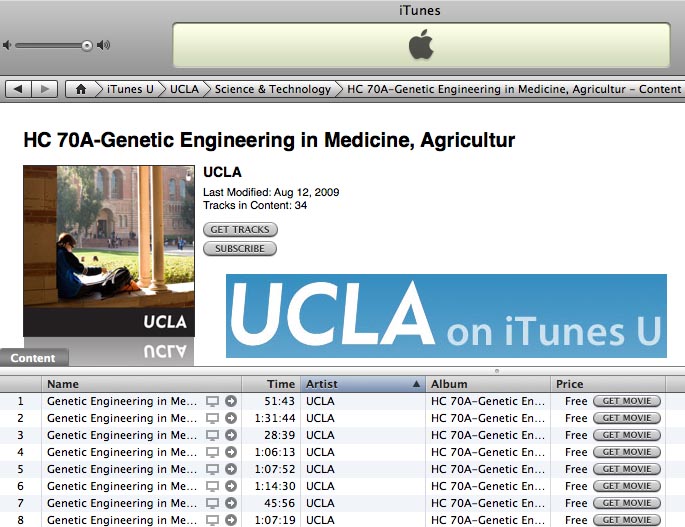
Download Lectures on iTunes
Articles on Bob Goldberg's Teaching Program
"An undergraduate course taught by Bob Goldberg titled "Genetic Engineering in Medicine, Agriculture and Law" was selected as one of "America's 10 Hottest Classes" by the web site the Daily Beast, founded by former New Yorker editor Tina Brown. Professor Goldberg "has been lauded on many occasions for being one of UCLA's best teachers," the publication notes.
Bob Goldberg is featured in Newsweek's Guide, "Finding the Right College for You" in an article titled, "In Search of Great Professors." A great professor can "get you excited about a whole new subject, influence which major you choose, and maybe even change your life," Newsweek says. "America's top profs ... excite and inspire their students" and "break down the wall that too often separates the classroom from the real world." Goldberg is the first professor Newsweek profiles.
An article from UCLA Newsroom decribing a long distance course, HC70A, Genetic Engineering in Medicine, Agriculture, and Law, taught by Professor Goldberg simultaneously to UCLA and UC Davis studens using state-of-the-art fiber optic cables, and live audio and video hookups through California Research and Education Network (CalREN).
An article by Dan Gordon highlighting Bob Goldberg's undergraduate science education program funded by the Howard Hughes Medical Institute.
An article from the UCLA Daily Bruin describing a multi-cultural long distance course taught by Professor Goldberg simultaneously to UCLA and Kyoto students in Japan using state-of-the-art fiber optic cables, electronic blackboards, and live audio and video hookups.
An article by Dan Gordon in the UCLA Magazine on Bob Goldberg's novel approach to teaching.
An editorial by Bob Goldberg in the journal The Plant Cell on undergraduate education.
Meet the Individuals That Make Bob Goldberg's Teaching Program Possible
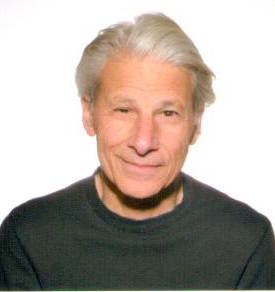
Professor Bob Goldberg
bobg@ucla.edu
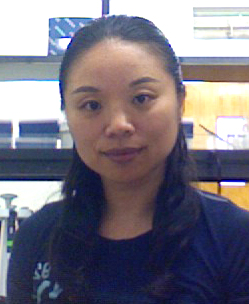
Min Chen
Program HC70AL
Bioinformaticist and Webmaster
m.chen@ucla.edu

Madelyn Gehrich
HC70A Peer Mentor
madelyngehrich@ucla.edu
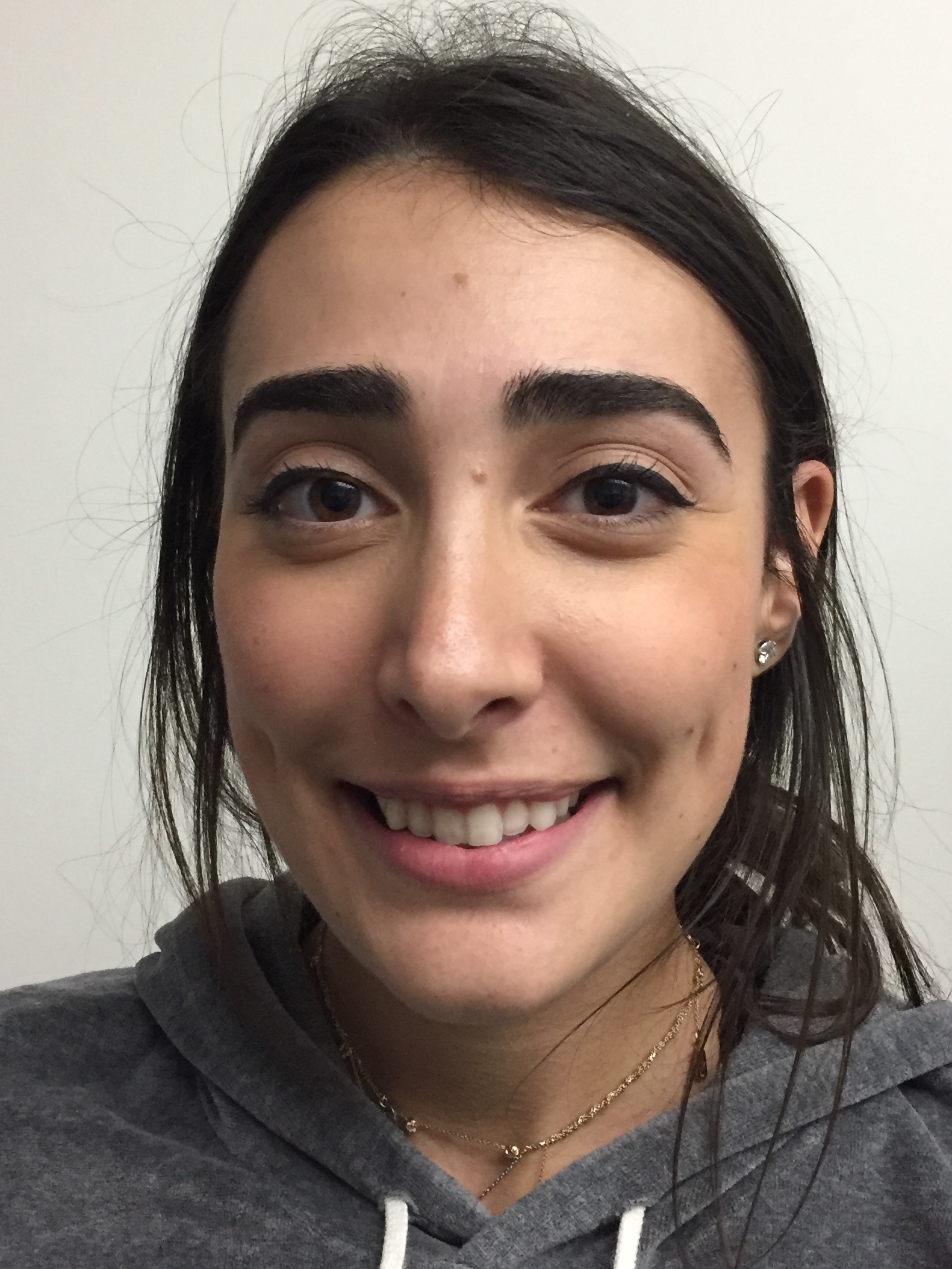
Ava Gordon
HC70A Peer Mentor
avagordon93@gmail.com
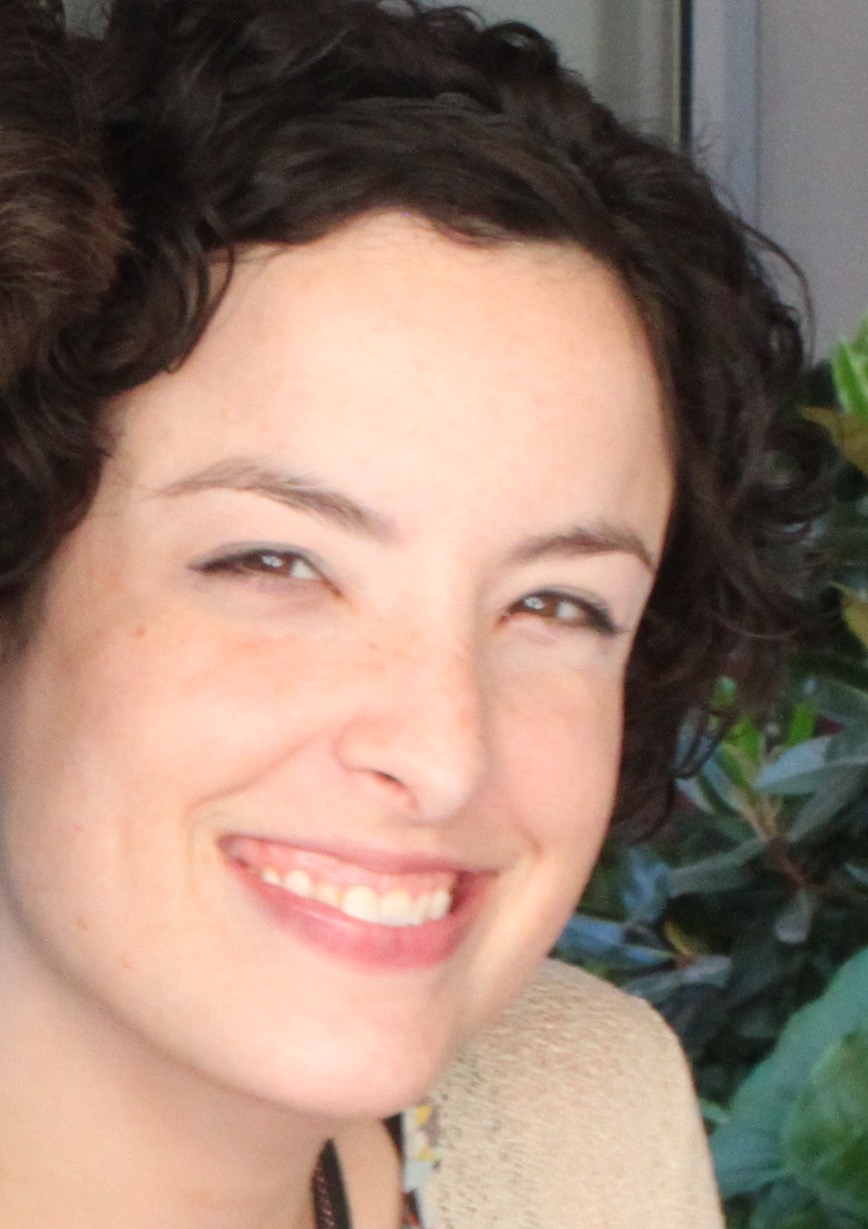
Lauren Bowman
Program Administrator
laurenbowman@ucla.edu